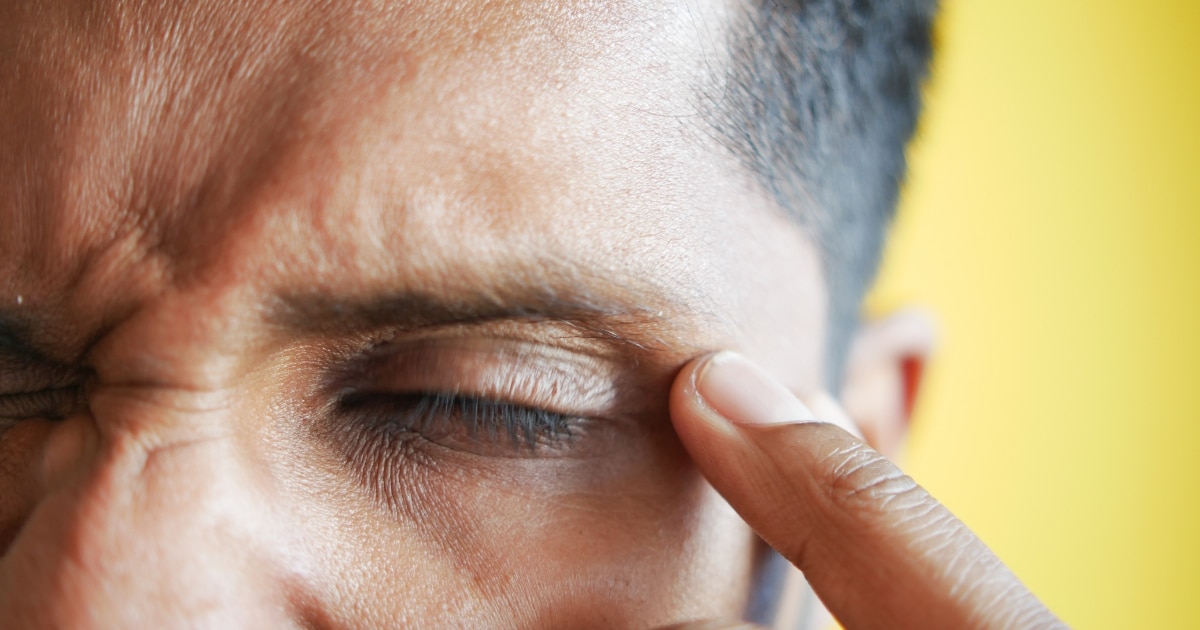You’re blinking more often, rubbing your eyes, and constantly feeling that irritating burn or scratchy sensation. What’s going on? If your eye feels like there’s sandpaper on your cornea or a lingering fire inside, it’s not just annoying—it’s also a signal that something is off. Understanding the cause can lead you to the right solution.
Possible Causes of Scratchy, Burning Eyes
The first step in finding relief is identifying the root of the problem. While many factors can contribute to that unpleasant feeling, the most common ones include:
Dry Eyes: Dryness is one of the leading causes of scratchy and burning eyes. Our eyes need moisture to stay healthy, and when that balance is disturbed, discomfort follows. Dry eye syndrome occurs when the tear glands lack enough lubrication, leaving the eyes feeling gritty and irritated.
Allergies: Seasonal allergies are notorious for causing burning, itchy eyes. Pollen, pet dander, and dust are just a few allergens that can irritate the eyes, triggering an inflammatory response.
Eye Strain: Spending hours staring at a screen without taking breaks? Your eyes are likely paying the price. Extended screen time without rest causes eye muscles to fatigue, leading to dryness and that scratchy sensation.
Environmental Factors: Wind, smoke, and dry indoor air can rob your eyes of essential moisture. If you’ve been outside on a windy day or spent time in an air-conditioned room, your eyes may feel drier than usual.
Contact Lenses: Wearing contact lenses for too long, especially if they’re not the right type for your eyes, can also contribute to that burning sensation. Poor contact lens hygiene or improper fit can irritate, making your eyes feel uncomfortable.
Eye Infections: Conjunctivitis, also known as pink eye, is an infection that can cause burning and scratchy sensations. Whether viral or bacterial, this condition is contagious and requires prompt treatment.
Blepharitis: Inflammation of the eyelids, known as blepharitis, can cause the edges of the eyelids to become irritated, resulting in burning or itchy eyes. This condition is usually linked to an overgrowth of bacteria on the skin near the eyelashes.
The Role of Dry Eye in Burning and Scratchy Sensations
Dry eyes are one of the most common reasons behind that irritating feeling. Our eyes naturally produce tears that help keep them lubricated. However, factors like age, medical conditions, or even long hours of screen time can throw off that balance, leading to dryness.
How do you know if dry eyes are the culprit? Here are some typical symptoms:
- A gritty, scratchy sensation
- Sensitivity to light
- Blurry vision
- Red or watery eyes
- A burning sensation that worsens throughout the day
While these symptoms can be frustrating, they can also be managed with the right approach.
Dry Eye Management: Steps to Find Relief
If dry eyes are to blame, proper dry eye management is crucial. Fortunately, several ways exist to address this condition and alleviate the burning, scratchy sensation. Here are a few strategies:
Artificial Tears: Over-the-counter artificial tear drops can provide immediate relief by replenishing moisture. These drops are a simple solution, but they may need to be used frequently if your eyes are persistently dry.
Blink More Often: Many people unknowingly blink less when focusing on screens, which dries out their eyes. Make a conscious effort to blink more often, especially during tasks that require intense focus.
Use a Humidifier: Adding moisture to the air, especially in dry climates or indoor spaces with heating and air conditioning, can make a significant difference. Humidifiers help keep the air in your home or office from sapping moisture from your eyes.
Take Breaks from Screens: The 20-20-20 rule is a great practice: every 20 minutes, take a 20-second break and look at something 20 feet away. This gives your eyes a chance to relax and recover from strain.
Adjust Your Diet: Omega-3 fatty acids in fish and flaxseeds support eye health by promoting tear production. Incorporating these into your diet may help with long-term dry eye management.
Warm Compresses: Applying a warm, damp compress to your eyes can improve tear quality and relieve irritation, particularly for conditions like blepharitis. It helps clear clogged oil glands in the eyelids, allowing for better lubrication.
Prescription Medications: If over-the-counter solutions aren’t enough, your eye doctor may recommend prescription eye drops that help increase tear production or treat underlying inflammation. In severe cases, punctual plugs—tiny devices placed in the tear ducts—can retain tears on the eye’s surface.
Avoiding Irritants to Prevent Further Eye Discomfort
Sometimes, the best strategy is prevention. To avoid that burning, scratchy feeling in the future, steer clear of these common irritants:
Stay Hydrated: Drinking enough water throughout the day ensures your body can produce sufficient tears, keeping your eyes well-lubricated.
Wear Sunglasses: Protect your eyes from wind and harmful UV rays with a good pair of sunglasses. This simple habit can make a big difference in preventing dryness and irritation.
Limit Contact Lens Wear: Be mindful of how long you wear your contact lenses; always clean them as recommended. Consider switching to daily disposables, which may reduce irritation.
Allergy Management: If allergies are behind your burning eyes, over-the-counter antihistamines can help. However, be cautious, as some allergy medications can cause dry eyes. Always consult your doctor for the best solution.
When to Seek Professional Help
Sometimes, scratchy, burning eyes are more than just a nuisance. If these symptoms persist despite trying home remedies, it’s essential to seek professional advice. A healthcare professional should address chronic dry eyes, infections, or more serious conditions like corneal damage.
Dry eyes can be caused by underlying health conditions, such as autoimmune diseases. For more targeted treatments, contact a specialist in dry eye management in Atascocita. These professionals assess the severity of your condition and customize a care plan to provide long-term relief. So, don’t wait too long to address any lingering irritation.


